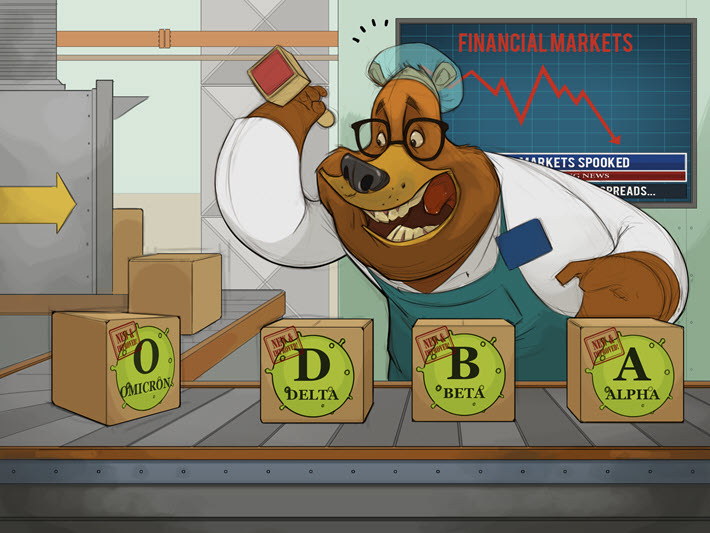Investing.com’s stocks of the week
By Geoffrey Smith
Investing.com -- A week ago, the new Omicron variant of the Covid-19 virus was threatening a new wave of human misery and economic hardship.
Fast forward a week, and it is still looking like the northern hemisphere has some tough weeks ahead. If Europe and North America can negotiate them safely, then the end of the pandemic may finally be in sight.
Fears that the new strain would prove both more infectious and consequently more deadly than the Delta variant, which has accounted for the bulk of the 5.3 million deaths attributed to Covid-19 so far, appear to be misplaced.
“It almost certainly is not more severe than Delta," Anthony Fauci, chief medical adviser to U.S. President Joe Biden told AFP on Tuesday, pointing to the widening gap between infection rates and hospital admissions in South Africa, where the new strain was first identified.
If subsequent research bears out encouraging preliminary findings of research into the new variant, the world has less need to fear another round of suffocating restrictions on economic and social life to prevent the collapse of public health systems.
However, a new study of cases in South Africa suggests that booster shots of existing vaccines only offer limited protection against the new variant. Given its greater transmissibility, that creates the scope for a very sharp rise in cases across the northern hemisphere as seasonal factors approach their peak.
A statement from Pfizer (NYSE:PFE) and BioNTech (NASDAQ:BNTX) earlier on Wednesday suggested that a third dose of their vaccine restores antibody levels to a level that offers a degree of protection against the new variant comparable to what has been demonstrated with older variants. However, the number of people with three doses of that shot in their arms is still low, and it is doubtful that the pace of booster shots can keep up with the new virus strain. Infection rates in South Africa have risen much faster in the current wave
